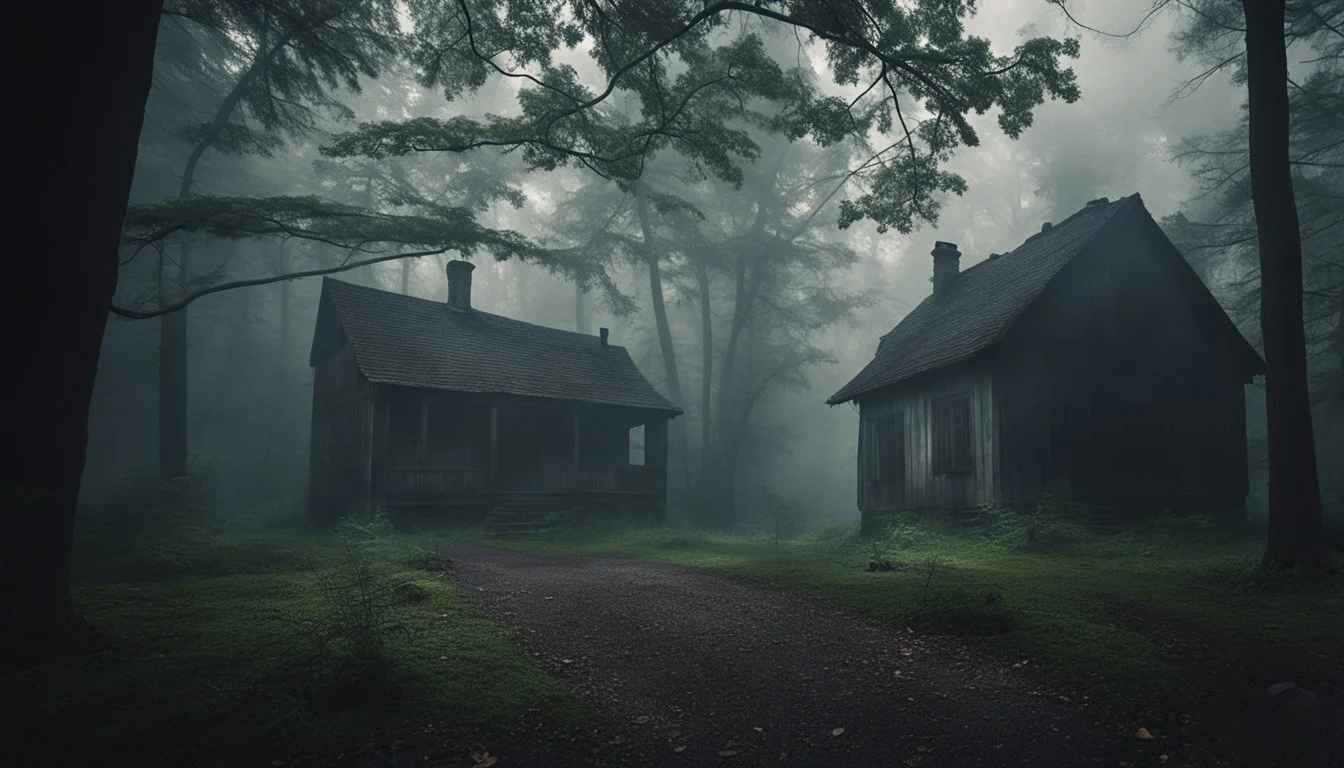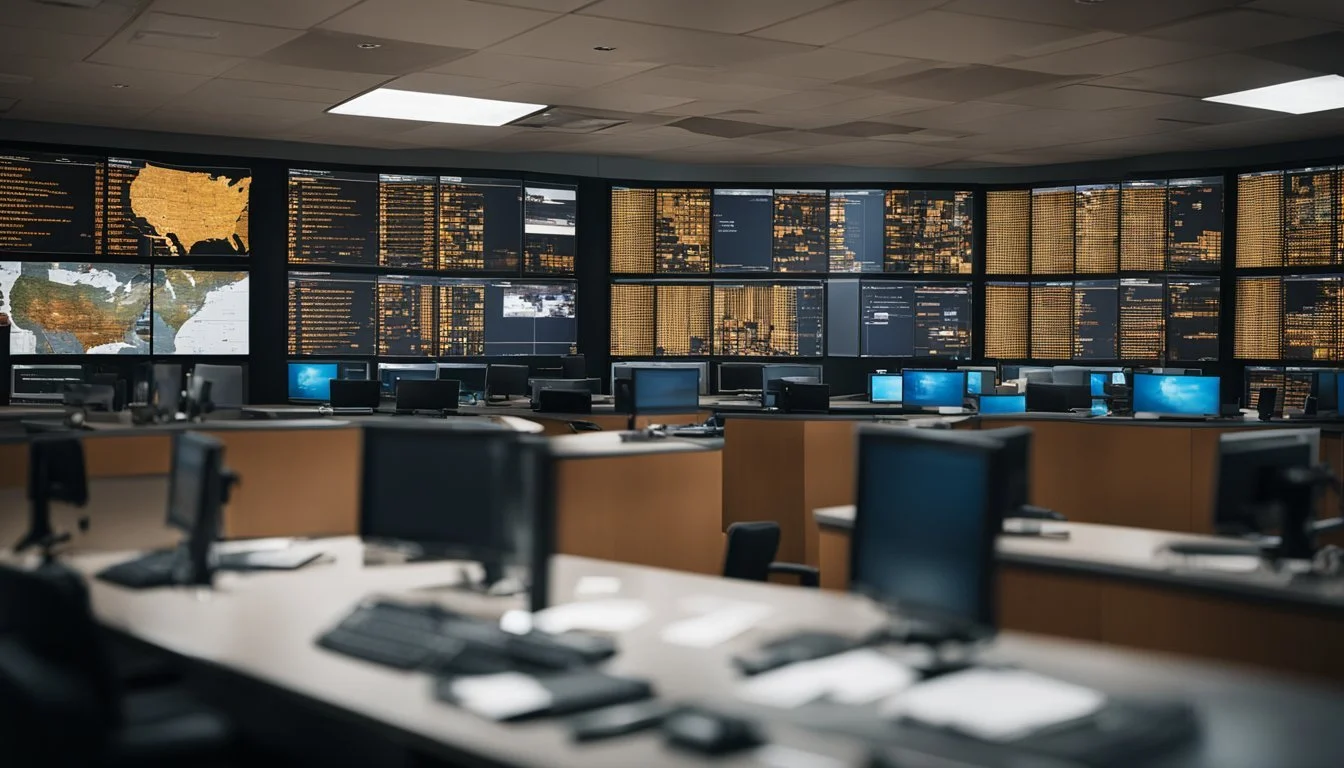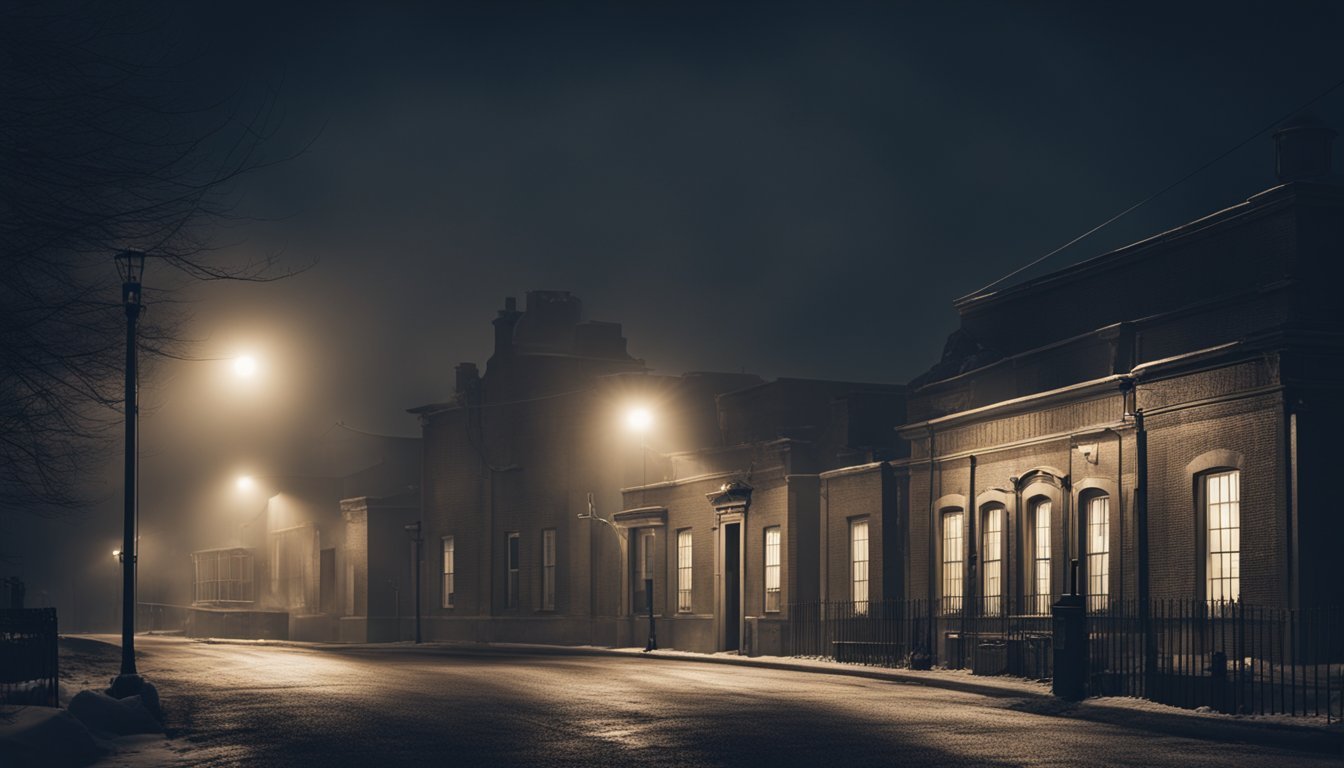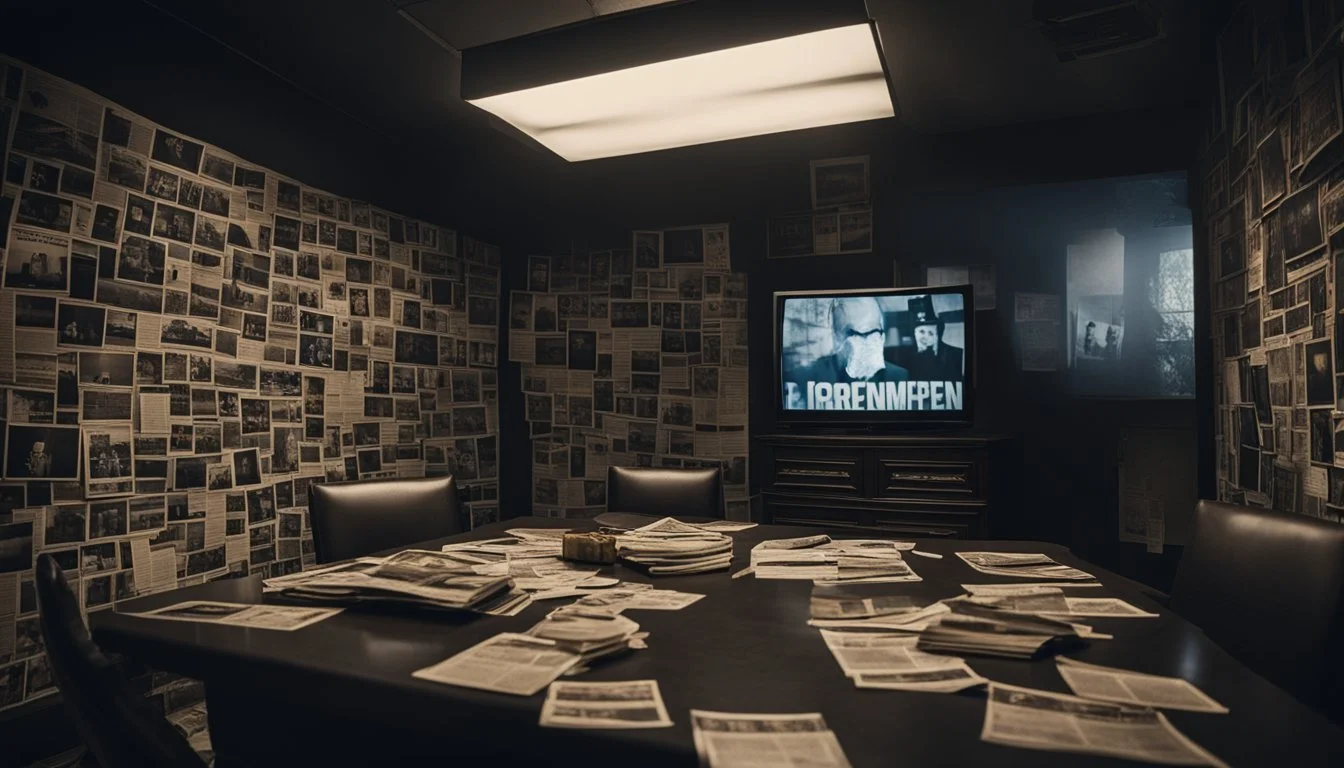7 True Crime Documentaries from Wisconsin That Will Shock You
Must-Watch Cases
True crime documentaries have captivated audiences with their meticulous exploration of the human psyche and the intricacies of criminal investigations. Wisconsin, with its seemingly peaceful landscapes, has been the backdrop for some of the most riveting true crime stories that continue to intrigue and confound viewers.
This article delves into seven true crime documentaries from Wisconsin that will leave you both shocked and engrossed in the stories behind the crimes. These documentaries offer a glimpse into the dark events that have unfolded in this Midwestern state, highlighting the relentless pursuit of justice and the complexities of human nature.
1) Making a Murderer (2015)
"Making a Murderer" is a renowned true crime documentary series on Netflix.
It centers on Steven Avery, who was wrongfully convicted of sexual assault in 1985, leading to an 18-year prison term.
After Avery's exoneration by DNA evidence, the series explores his subsequent accusation for the murder of Teresa Halbach in 2005.
The documentary delves into alleged misconduct by Wisconsin law enforcement.
The series reveals an unsettling narrative of potential police corruption and judicial failings.
It highlights Avery's complex legal battles and the societal impacts of wrongful convictions.
"Making a Murderer" gained massive viewership and sparked debates on criminal justice reforms.
For more information, visit Wikipedia.
2) Wisconsin Death Trip (1999)
Wisconsin Death Trip, directed by James Marsh, is an unsettling docudrama based on the 1973 book by Michael Lesy. It explores a series of bizarre and morbid events that happened in Black River Falls, Wisconsin, in the late 19th century.
The film intersperses black-and-white reenactment footage with genuine 19th-century photographs to tell the story. Events range from arson and bizarre deaths to instances of madness and grave robbery.
James Marsh uses a unique approach in the documentary. The visuals are augmented by the narration of Ian Holm, providing a haunting atmosphere. This contrast between reenactment and historical documentation creates a captivating, eerie experience.
More information: Wisconsin Death Trip - IMDb
3) The Jeffrey Dahmer Files (2012)
The Jeffrey Dahmer Files is a gripping true crime documentary that dives deep into the life and crimes of one of Wisconsin's most notorious serial killers, Jeffrey Dahmer.
Part of the film focuses on interviews with people close to the case, including a neighbor, a detective, and the medical examiner. These interviews provide insight into Dahmer's life and the investigation.
The documentary combines real-life footage and reenactments, giving viewers a comprehensive view of Dahmer's chilling activities and the subsequent investigation.
Released in 2012, the film is directed by Chris James Thompson and brings a detailed and somber portrayal of the events surrounding Dahmer's arrest and trial. This documentary is essential viewing for true crime enthusiasts looking to understand more about the infamous killer from Milwaukee.
For more information, visit IMDB.
4) The Hunt for the Milwaukee Cannibal
Jeffrey Dahmer, known as the Milwaukee Cannibal, terrorized Milwaukee for more than a decade. His gruesome acts included murder, dismemberment, and cannibalism, targeting 17 men and boys.
Born in Milwaukee, Wisconsin on May 21, 1960, Dahmer's crimes spanned from 1978 to 1991. His arrest on July 22, 1991 shocked the nation, revealing the horrifying extent of his actions.
Several documentaries delve into Dahmer's life and crimes, each providing unique insights:
"Dahmer: The Blood Curling Story Of The Milwaukee Cannibal" (2020) explores Dahmer's twisted motives and methods, shedding light on the psychological facets of his behavior. IMDB
"Serial Killer Documentary: Jeffrey Dahmer (The Milwaukee Cannibal)" (2012) focuses on the investigation process, detailing how law enforcement tracked and captured him. It offers an in-depth look at the forensic work involved. IMDB
"Conversations with a Killer: The Jeffrey Dahmer Tapes" (2022) features interviews and archival footage, providing a chilling glimpse into Dahmer's mind through his own words. IMDB
These documentaries provide not just a recount of his crimes but also a deep dive into the efforts to understand his psyche and bring him to justice.
5) Evil Genius (2018)
Evil Genius is a gripping true crime documentary series released on Netflix in 2018. It chronicles the infamous "pizza bomber" case of 2003 involving Brian Wells, a pizza delivery man who robbed a bank in Erie, Pennsylvania with a bomb fastened around his neck.
The series delves into the bizarre and complex plot behind the crime, revealing surprising twists and unpredictable characters. It examines the involvement of Marjorie Diehl-Armstrong, a woman with a troubled past, and a group of conspirators who orchestrated the heist.
Evil Genius stands out for its meticulous storytelling and attention to detail. Through interviews, archival footage, and expert commentary, viewers gain insight into the criminal minds behind the plot and the law enforcement's efforts to unravel the case.
For those fascinated by real-life mysteries and intricate criminal schemes, this series provides a deep dive into one of America's most unusual bank heists.
More about Evil Genius on Wikipedia
6) Convicting a Murderer (2023)
"Convicting a Murderer" is a true-crime documentary series that explores the contentious case of Steven Avery.
Avery was convicted for the murder of Teresa Halbach. The series serves as a rebuttal to the Netflix documentary "Making a Murderer."
Hosted by Candace Owens for The Daily Wire, it offers a different perspective on Steven Avery’s culpability.
The series dissects police reports from Avery’s past, revealing a significantly more alarming criminal history than previously disclosed.
For those interested in an alternative take on one of the most controversial criminal cases in recent history, this series is essential viewing.
More information can be found on Wikipedia.
7) Finding Andrea (2021)
"Finding Andrea" is a 2021 docuseries that delves into the mysterious disappearance of Andrea Knabel.
Andrea was a single mother and an active member of the Missing in America volunteer group. Her sudden disappearance leaves her family and friends in a state of shock.
The case draws significant attention due to the numerous theories and leads surrounding Andrea's vanishing.
As the series progresses, the narrative takes darker twists. The volunteer group starts to suspect that one of their own might be involved.
A new investigator on the case finds inconsistencies in the timeline of Andrea's last known whereabouts, adding to the mystery.
This four-part series intricately explores what could have happened to Andrea and why she disappeared without a trace.
For more detailed information on this true crime documentary, visit IMDb: Finding Andrea.
Historical Context of True Crime in Wisconsin
Wisconsin's true crime history spans from early statehood through the present, marked by infamous cases and continued discussions in media. Key points include the evolution of crime patterns and notable cases that have garnered public attention.
Early Crime History
In the early years of Wisconsin's statehood, crime often revolved around the struggles of pioneering communities. The mid-1800s saw numerous cases of theft, assault, and even murder, primarily driven by economic hardships and territorial disputes.
One notable case from this period involves the execution of John Baptiste DuBay in 1857 for the murder of James P. Shew. This event was one of the first major legal spectacles in Wisconsin. Crime in this era also included conflicts between settlers and Native American tribes, which often became violent.
Wisconsin's legal system was still developing, and many early trials were influenced by public opinion rather than strict legal procedures. Vigilantism was not uncommon, reflecting the law enforcement challenges of the time.
Notable Cases Through The Decades
Moving into the 20th century, Wisconsin continued to witness high-profile crimes. In 1957, the arrest of Ed Gein shocked the nation. Known as the "Butcher of Plainfield," Gein's gruesome activities inspired numerous books and films, including "Psycho" and "The Silence of the Lambs."
The 1973 murder of 9-year-old Lisa Ann French in Fond du Lac by Gerald Turner, dubbed the "Halloween Killer," remains a chilling case that profoundly impacted the community and pushed for stricter laws on violent criminals.
In 2005, the murder of photographer Teresa Halbach and the subsequent trials of Steven Avery and Brendan Dassey, brought extensive media coverage, particularly with Netflix's documentary series "Making a Murderer." This case raised significant questions about the criminal justice system in Wisconsin.
Across different eras, these notable cases have shaped Wisconsin's approach to crime and punishment, highlighting both the progress and persistent challenges in the state's fight against crime.
Cultural Impact of True Crime Documentaries
True crime documentaries not only attract large audiences but also shape public conversations and perceptions about crime and justice.
Public Fascination with Crime
The genre taps into a deep-seated curiosity about human behavior and criminal acts. People are drawn to the psychological aspects of crime, the investigative process, and the quest for justice.
True crime documentaries provide detailed narratives that offer a window into real-world cases. This fascination often leads to discussions about legal decisions and moral questions.
These documentaries have created a community of amateur sleuths who engage in online forums and discussion groups, dissecting every detail of the cases presented.
Media Influence on Perception
The media plays a crucial role in shaping public perception of crime and justice. True crime documentaries can influence how viewers perceive the criminal justice system and the individuals involved in crimes.
Through meticulous storytelling, these documentaries can bring attention to flaws in the justice system, sometimes even leading to real-world changes, such as reopened cases or exonerations.
However, they can also contribute to a distorted view of crime rates and criminal behavior, potentially heightening fear and perceived vulnerability, especially in communities with low crime rates.
The inclusion of interactive elements, such as interviews and archival footage, enhances the authenticity and impact of these narratives, leaving a lasting impression on the audience.
Psychological Aspects of True Crime
The fascination with true crime involves a complex interplay between understanding criminal minds and examining the effects on viewers. Both aspects reveal intriguing insights into human nature and psychology.
Understanding Criminal Minds
True crime content often highlights the psychological profiles of criminals. Many documentaries delve into criminals' backgrounds, examining early life experiences that may have contributed to their later actions. Psychologists frequently discuss factors like childhood trauma, personality disorders, and socio-economic pressures.
Documentaries frequently feature expert analyses from criminologists and psychologists. These professionals offer insights into the motivations and behaviors of criminals, elucidating on theories like the cycle of violence and the role of nature versus nurture. Understanding these elements helps viewers grasp why certain individuals commit heinous acts.
Impact on Viewers
Consuming true crime content has significant psychological effects on viewers. Many people are drawn to true crime out of curiosity, a desire for justice, or a fascination with the darker aspects of human nature. This genre can elicit a range of emotions, from fear and anxiety to empathy for victims.
Overindulgence in true crime can lead to heightened fear and paranoia. Constant exposure to violent content may make viewers feel as though they are in constant danger. Experts suggest that moderation is key, as balancing true crime with other, lighter content can mitigate adverse effects.








